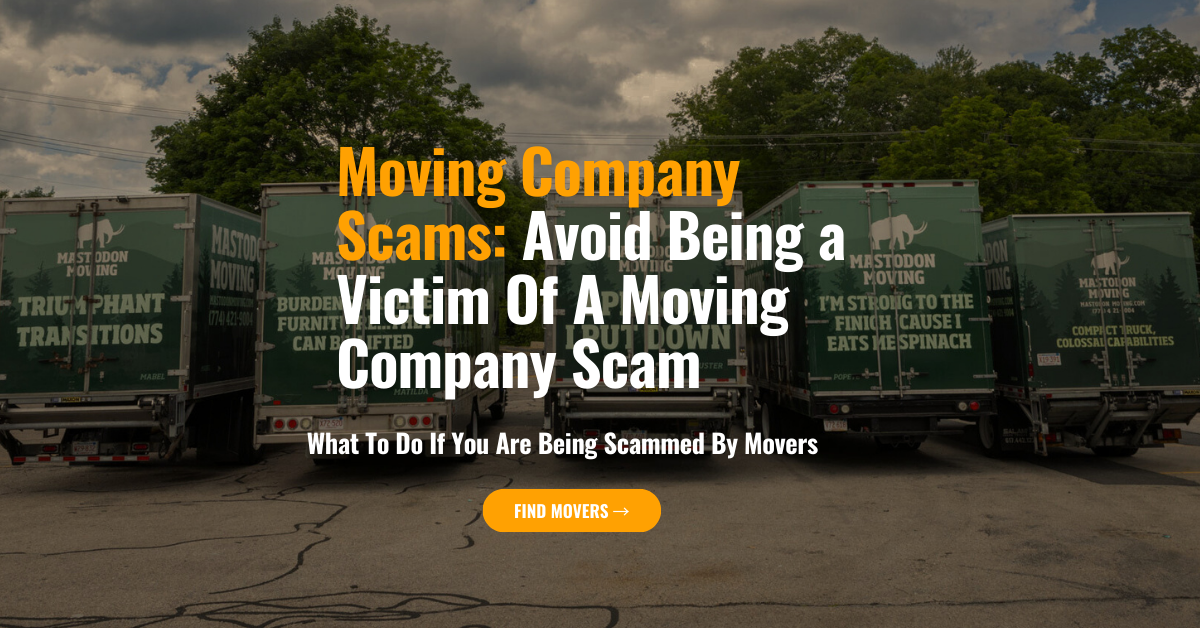
–
Understanding Moving Scams
Moving can be a stressful experience, and unfortunately, there are scammers out there looking to take advantage of unsuspecting customers. These scams can lead to financial loss, damaged belongings, and significant stress. Let’s explore common moving scams, how to avoid them, what to do if you fall victim, and how to choose a trustworthy moving company.
Common Moving Scams
Bait and Switch
One of the most common scams is the bait and switch, where a moving company gives you a low estimate to secure your business and then significantly increases the price once your belongings are loaded onto the truck.
Hostage Goods
In this scam, the moving company loads your belongings onto the truck and then refuses to deliver them until you pay a much higher price than originally agreed upon.
Fake Companies
Some scammers set up fake moving companies with professional-looking websites and fake reviews. Once they receive your deposit, they disappear, leaving you without a mover and out of pocket.
How to Avoid Moving Scams
Research Thoroughly
Start by researching potential moving companies thoroughly. Look for reviews on multiple platforms, check their ratings with the Better Business Bureau (BBB), and see if they are registered with the Federal Motor Carrier Safety Administration (FMCSA).
You can also look up the moving company owner name and address on your state’s corporation site:
Once you have that information:
1. Map the address and see if it is a person’s home/coworking space or fake location.
2. Check the owner out – do they live in your state so you can contact them directly if you need to ( or file a suit). If you are moving long distance, you should always choose a mover with a corporate address in the state you are moving to.
Get Written Estimates
Request written estimates from at least three different moving companies. Ensure these estimates are based on an in-home survey of your belongings rather than a quick phone or online estimate.
Verify Credentials
Check the company’s credentials. Ensure they have a valid USDOT number if they are performing interstate moves and verify this number on the FMCSA website. Local movers should have a state license where applicable.
Avoid Large Upfront Deposits
Reputable moving companies typically do not require large upfront deposits. Be wary of any company asking for a significant deposit before the move.
What to Do If You Are a Victim of a Moving Scam
Document Everything
Keep all documentation related to the move, including contracts, estimates, emails, and receipts. This information will be crucial when filing a complaint or taking legal action.
Contact Authorities
Report the scam to the FMCSA, BBB, and your state’s consumer protection office. These agencies can provide guidance and may be able to take action against the fraudulent company.
Seek Legal Assistance
Consult with an attorney who specializes in consumer protection or moving scams. They can advise you on your rights and help you take legal action to recover your losses.
Share Your Experience
Warn others by sharing your experience on review sites and social media. This can help prevent others from falling victim to the same scam.
How to Choose a Trustworthy Moving Company
Get Recommendations
Ask friends, family, and colleagues for recommendations. Personal experiences can be invaluable in finding a reliable moving company.
Check Professional Associations
Look for membership in professional associations such as the American Moving and Storage Association (AMSA) or state moving associations. Membership in these organizations often indicates a commitment to professional standards and ethical business practices.
Visit the Office
Visit the moving company’s office in person if possible. A legitimate company will have a physical address, professional staff, and branded trucks and equipment.
Review the Contract
Carefully review the moving contract before signing. Ensure all details are clearly outlined, including the estimated costs, delivery dates, and any additional fees. Ask questions about anything you do not understand or agree with.
Moving scams can turn an already stressful experience into a nightmare. By taking the time to research thoroughly, verify credentials, and follow the steps outlined above, you can protect yourself from falling victim to these scams. If you do find yourself scammed, act quickly to document everything, report the incident, and seek legal assistance. With careful planning and due diligence, you can choose a trustworthy moving company and ensure a smooth transition to your new home.

